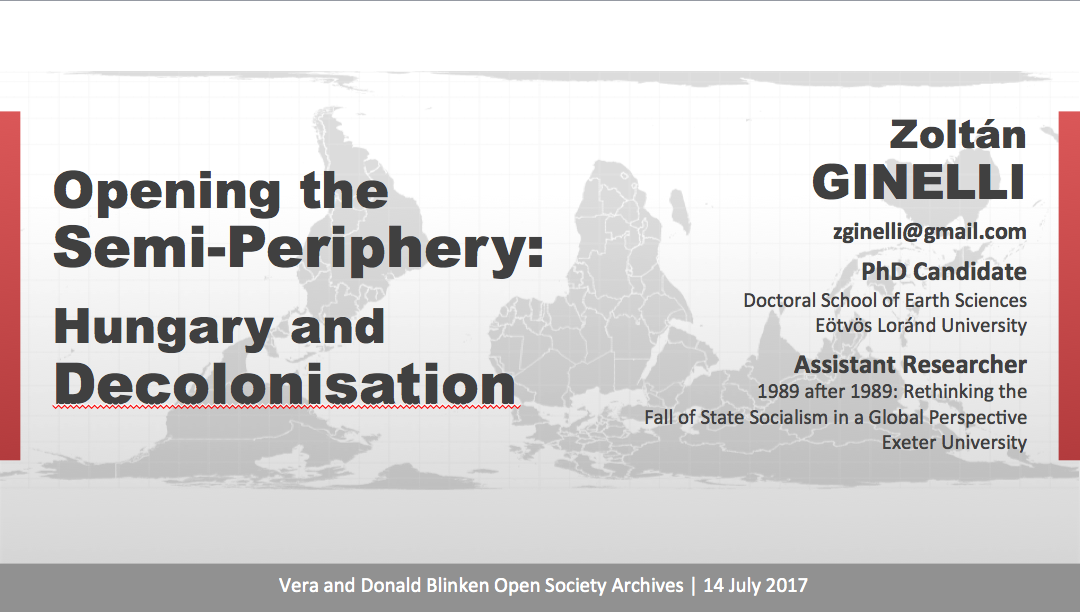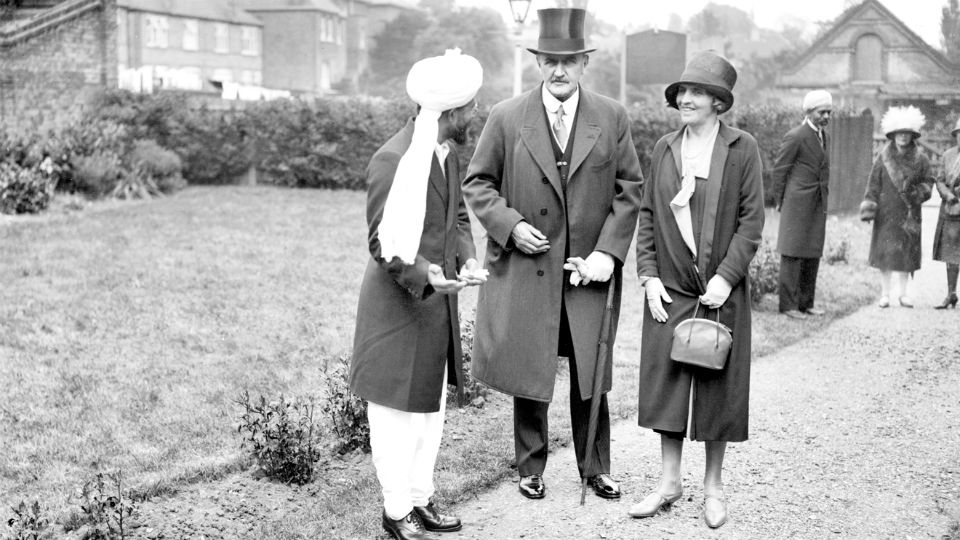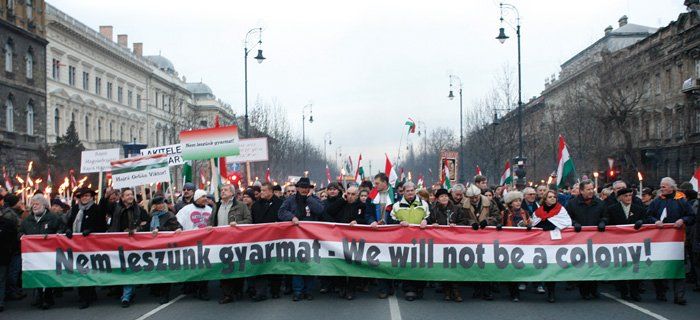
Is there a postcolonial Hungary? This project focuses on situating Hungary’s historical development in the global histories of colonialism and anti-colonialism. It interrogates the revival of colonial discourse in the region and explores how it displaced a politics of Western transition and convergence by reconstructing the histories of Hungarian colonial discourse and self-positioning in the world economic system.
Postcolonial studies have been preoccupied with the global economic centre and periphery, but the complex historical relations, experiences and epistemologies of Eastern European and Hungarian colonialism and imperialism have been remarkably silenced (Mayblin et al. 2016; Mark and Slobodian 2018; Grzechnik 2019). Meanwhile, new research has shown that Cold War epistemological heritage rendered connections between postsocialism and postcolonialism problematic (Chari and Verdery 2008; Gille 2010; Mayblin et al. 2016), and East-West convergence discourse has marginalised historical relations between Eastern Europe and the Global South (Mark and Apor 2015; Mark and Slobodian 2018; Muehlenbeck and Telepneva 2018; Mark et al. 2020; Stanek 2020). Following a global historical and world-systemic perspective, this research introduces the concept of semiperipheral post/coloniality to unpack Hungarian coloniality in the long-term historical context of integrating into the world economy, thereby offering a structuralist critique of constructivist approaches to postcolonialism (e.g. Wolff 1994; Bakić-Hayden 1995; Todorova 1997). The Hungarian semiperipheral integration to the hierarchical system of the global division of labour has generated structural path-dependencies (uneven exchange, indebtedness, financing technology) (Márk et al. 2014), which resulted in global manoeuvring to gain comparative advantages between the (former) colonising centre and the (former) colonised periphery. This led to an uneasy and often antagonistic in-betweeness in the context of global hierarchies: being superior coloniser but oppressed colonised; catching up to and benefiting from but contesting the colonial centre; bridging or allying to but demarcating from the periphery. This project seeks to reconstruct the history of such a semiperipheral Eastern European country in order to understand the new political stakes in the revival of colonial discourse in current Hungarian politics.
Before WWII, Hungarian colonialist-imperialist ambitions followed nationalist and global racial-civilisational aspirations, but pragmatically developed East-West in-betweenness and uneasy criticism towards the imperialist West. Local experiences of peripheralisation, underdevelopment and out-migration forged sympathy with those in a similarly subservient position within the colonial system, but there also evolved alternative colonialisms of semiperipheral expansion and racial supremacy (e.g. Balkanism, Orientalism, Turanism). After WWII, state-socialist anti-colonial solidarity contested geopolitical fault-lines and Western European protectionism (1957), but Hungarian trajectories were driven by pragmatic, state-led foreign policy aims to lever Soviet and Western “dual dependency” (Böröcz 1992) by opening to Afro-Asian decolonisation. Amidst fears of international isolation (Péteri 2012), the post-1956 Hungarian alliance-building and global positioning encouraged to encounter coloniality through socialist internationalism (Mark and Apor 2015; Mark et al. 2020). Hungary re-opened to the decolonised periphery with “civilisational” desires to export the “Hungarian model” and develop markets to counter the global centre, whilst the periphery contributed to Hungarian “third way” state-centred and semi-capitalist export-oriented growth as a new integration strategy during the 1960s New Economic Mechanism (Ginelli 2017, 2018). On the other hand, rivalling narratives clashed between state-socialist anti-Western anti-colonialism and émigré “Soviet colonialism” in the Non-Aligned postcolonial world about how to incorporate Hungary and Eastern Europe into global colonialism.
After 1989, Hungary as part of the former Second World lost its global ideological privileges and Afro-Asian connections, and experienced third-worldification by becoming the core’s “undeveloped” region. The postsocialist “return to Europe” and self-colonising neoliberal “transition” silenced anti-colonial critique against the West (or the EU) (Böröcz 2009), and resulted in “postsocialist amnesia” on former relations with the global postcolonial world and in racial realignment with whiteness (Böröcz and Sarkar 2017; Mark et al. 2019). After the 2008 crisis, Viktor Orbán’s increasingly authoritarian “illiberal” turn from 2010 on sought to globally reposition Hungary against the “failed liberalism” of Western transition. Apart from various political regionalisms (“classical Europe”, “Central Europe”, “Eurasia”) (Balogh 2015; 2017), this geopolitical manoeuvring produced a new colonial discourse which positioned Hungary against the liberal, Atlantic-Western colonial-imperial centre (“Brussels is the new Moscow”, “we never had colonies”, “we will not become colonies”), while constructing selective racial-civilisational demarcation from the periphery in anti-migration discourse, and appropriating global colonial history exclusively for Eastern European nationalist victimisation. This Hungarian semiperipheral postcolonial identity politics not only exploits the country’s silenced historical experiences of coloniality (Ottoman: 1526, Habsburg: 1848, Trianon: 1920, Soviet: 1949, 1956), but also functions in the semiperipheral re-adaptation to current hegemonic shifts in the world economy. Hungary’s “Eastern turn” to the New Silk Road exploits Turanist Orientalism towards Central Asia, “illiberalism” and “Christian democracy” functions in developing new global alliance networks in Sub-Saharan Africa, the Middle East and Latin America, while the reaffirmation of European whiteness and appropriation of colonial history aims to exclude Afro-Asian postcolonial competition for benefits in the European Union.
This research is part of my Leibniz ScienceCampus “Eastern Europe – Global Area” reseearch project at Universität Leipzig.
Bibliography
Bakić-Hayden, M. (1995): Nesting Orientalism: the Case of Former Yugoslavia. Slavic Review, 54(4): 917–931.
Balogh, P. (2015): Returning to Eurasia from the heart of Europe? Geographical metanarratives in Hungary and beyond. In: Törnquist-Plewa, B., Bernsand, N., Narvselius, E. (eds.) Beyond Transition? Memory and Identity Narratives in Eastern and Central Europe. Lund University. 191–208.
––––. (2017): The revival of ‘Central Europe’ among Hungarian political elites: its meaning and geopolitical implications. Hungarian Geographical Bulletin, 66(3): 191–202.
Böröcz, J. (1992): Dual Dependency and the Informalization of External Linkages: The Case of Hungary. Research in Social Movements, Conflicts and Change, 14: 189–209.
Böröcz, J. (2009): The European Union and Global Social Change: A Critical Geopolitical-Economic Analysis. Routledge.
Böröcz, J., Sarkar, M. (2017): The Unbearable Whiteness of the Polish Plumber and the Hungarian Peackock Dance around “Race”. Slavic Review, 76(2): 307–314.
Chari, S., Verdery, K. (2009): Thinking between the Posts: Postcolonialism, Postsocialism, and Ethnography after the Cold War. Comparative Studies in Society and History, 51(1): 6–34.
Gille, Z. (2010): Is There a Global Postsocialist Condition? Global Society, 24(1): 9–30.
Ginelli, Z. (2017): Opening the Semi-Periphery: Hungary and Decolonisation. OSA Visegrad Fund Scholarship Research Report.
Ginelli, Z. (2018): Hungarian Experts in Nkrumah’s Ghana: Decolonization and Semiperipheral Postcoloniality in Socialist Hungary. Mezosfera, 5. http://mezosfera.org/hungarian-experts-in-nkrumahs-ghana/
Grzechnik, M. (2019): The Missing Second World: On Poland and Postcolonial Studies. Interventions, 21(7): 998–1014.
Mark, J., Apor, P. (2015): Socialism Goes Global: Decolonization and the Making of a New Culture of Internationalism in Socialist Hungary, 1956–1989. The Journal of Modern History, 87(4): 852–891.
Mark, J., Slobodian, Q. (2018): Eastern Europe in the Global History of Decolonization. In: Thomas, M., Thompson, A. (eds.) The Oxford Handbook of the Ends of Empire. Oxford University Press. 351–372.
Mark, J., Iacob, B. C., Rupprecht, T., Spaskocska, L. (2019): 1989: A Global History of Eastern Europe. Cambridge University Press.
Mark, J., Kalinovsky, A., Marung, S. (eds.)(2020): Alternative Globalizations: Encounters Between the Eastern Bloc and the Postcolonial World. Indiana University Press.
Márk, É., Gagyi, Á., Gerőcs, T., Jelinek, C., Pinkasz A. (2014): 1989: Szempontok a rendszerváltás globális politikai gazdaságtanához. [1989: Considerations for the global political economy of the system change.] Fordulat, 21(1): 11–61.
Mayblin, L., Piekut, A., Valentine, G. (2016): ’Other’ Posts in ’Other’ Places: Poland through a Postcolonial Lens? Sociology, 50(1): 60–76.
Muehlenbeck, P. E., Telepneva, N. (eds.)(2018): Warsaw Pact Intervention in the Third World: Aid and Influence in the Cold War. I. B. Taurus
Péteri, G. (2012): Transsystemic Fantasies: Counterrevolutionary Hungary at Brussels’ Expo ’58. Journal of Contemporary History, 47(1): 137–160.
Stanek, Ł. (2020): Architecture in Global Socialism: Eastern Europe, West Africa, and the Middle East in the Cold War. Princeton University Press. Todorova, M. (1997): Imagining the Balkans. Oxford University Press.
See chapters of this project on this blog:
Ginelli, Z. (2019): Hungarian Indians: Racial and Anti-Colonial Solidarity in Post-Trianon Hungary. Critical Geographies Blog, 2019.03.18. Link: /2019/03/18/hungarian-indians-racial-and-anti-colonial-solidarity-in-post-trianon-hungary
Ginelli Z. (2019): The Semiperipheral Colonial Alternative: Visions of Hungarian Catholic Postcoloniality in Latin America. Critical Geographies Blog. 2019.07.11. Link: /2019/07/11/the-semiperipheral-colonial-alternative-visions-of-hungarian-catholic-postcoloniality-in-latin-america
Ginelli, Z. (2019): Plotting the Semiperipheral Empire: Hungarian Balkanism and Global Colonialism in Geographical Knowledge, 1867–1948. Critical Geographies Blog, 2020.03.18. Link: /2019/03/18/plotting-the-semiperipheral-empire-hungarian-balkanism-and-global-colonialism-in-geographical-knowledge-1867-1948
Ginelli, Z. (2019): Posztkoloniális Magyarország: A magyar globális nyitás és illiberális autoriter fordulat újraértelmezése a félperifériás gyarmatiság szempontjából. Critical Geographies Blog, 2019.08.11. /2019/08/11/posztkolonialis-magyarorszag-a-magyar-globalis-nyitas-es-illiberalis-autoriter-fordulat-ujraertelmezese-a-felperiferias-gyarmatisag-szempontjabol
Ginelli Z. (2019): The Clash of Colonialisms: Hungarian Communist and Anti-Communist Decolonialism in the Third World. Critical Geographies Blog, 2019.12.23. Link: /2019/12/23/the-clash-of-colonialisms-hungarian-communist-and-anti-communist-decolonialism-in-the-third-world
Ginelli Z. (2020): Semiperipheral Empire: Hungarian Balkanism in Global Colonialism. Critical Geographies Blog, 2020.02.29. Link: /2020/02/29/semiperipheral-empire-hungarian-balkanism-in-global-colonialism
Ginelli Z. (2020): Opening Hungary to Global Colonialism: János Xántus and Hungarian Orientalism in East and Southeast Asia. Critical Geographies Blog, 2020.03.07. Link: /2020/03/07/opening-hungary-to-global-colonialism-janos-xantus-and-hungarian-orientalism-in-east-and-southeast-asia
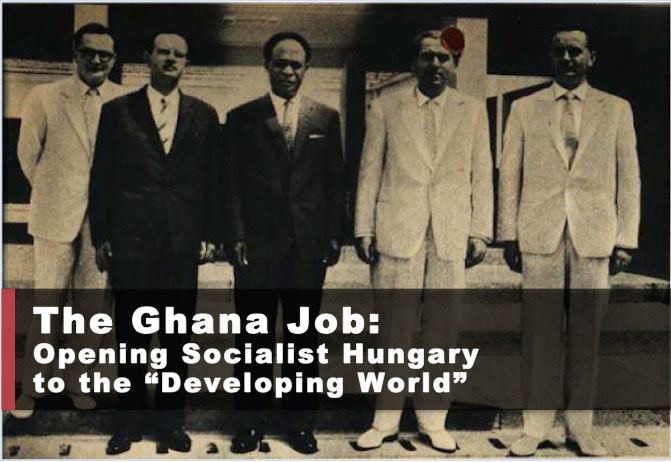
 Seminar Room
Seminar Room My research report to the Open Society Archives turned out to be a draft of a lengthy working paper that summarizes some of the materials I have been working with. You can read about my OSA research proposal
My research report to the Open Society Archives turned out to be a draft of a lengthy working paper that summarizes some of the materials I have been working with. You can read about my OSA research proposal 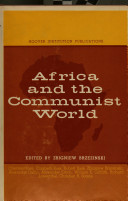
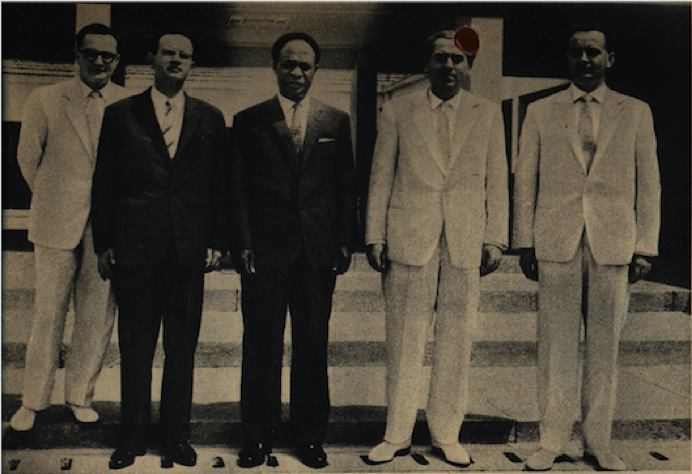 A magyar közgazdász delegáció megérkezése Accrába 1962-ben, hogy kidolgozzák Ghána hétéves tervét. Balról jobbra: Bácskai Tamás (Bognár asszisztense, egyetemi docens), Kós Péter (nagykövet), Kwame Nkrumah (a Ghánai Köztársaság elnöke), Bognár József (főtanácsadó), Székely Gábor (Bognár asszisztense, mérnökközgazdász).
A magyar közgazdász delegáció megérkezése Accrába 1962-ben, hogy kidolgozzák Ghána hétéves tervét. Balról jobbra: Bácskai Tamás (Bognár asszisztense, egyetemi docens), Kós Péter (nagykövet), Kwame Nkrumah (a Ghánai Köztársaság elnöke), Bognár József (főtanácsadó), Székely Gábor (Bognár asszisztense, mérnökközgazdász).